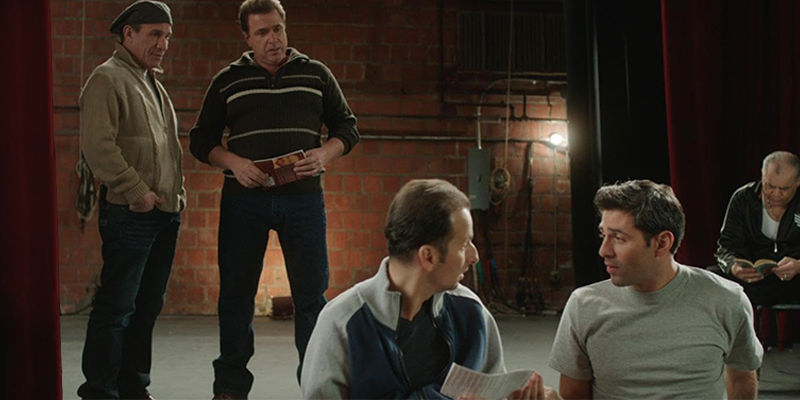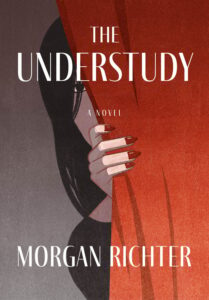In the early years of the 20th century, members of the Black Hand, a widespread and much-feared criminal extortion racket operating in major American cities, set their sights on famed singer Enrico Caruso. Caruso, the Metropolitan Opera’s star tenor, had signed a lucrative contract with the Victor Talking Machine Company—later RCA Victor—in 1904 to release his music on phonographic records, a then-emerging medium. While this had the happy effect of turning him into the world’s first recording star, the resulting increase in wealth and fame also made him an attractive target for criminals. The Black Hand delivered multiple letters to Caruso’s New York home, vowing to harm or kill members of his family unless he paid them a large amount of money; they also threatened to destroy his valuable vocal cords by slipping lye into his wine or tea. After Caruso handed over the cash, the Black Hand escalated their threats, demanding ever-increasing sums. Finally, in 1910, Caruso turned to the police for help. The NYPD conducted a sting operation that resulted in the arrests of two Black Hand members, but Caruso was still plagued by periodic extortion demands throughout the remainder of his career. The ongoing threats forced him to adjust his personal habits, and for the rest of his life, he always traveled with a bodyguard.
While Caruso was likely the first recording artist to have his career impacted by organized crime, he was far from the last. Nor was the criminal activity limited to the opera world; the mob insinuated its tendrils into every music genre. Jazz legend Louis Armstrong got his start playing at Matranga’s, a mob-run club in New Orleans and the site of frequent bursts of gangland violence. Later, when Armstrong moved to Chicago, he acquired a business manager, Joe Glaser, who had known ties to Al Capone. After crooner Bing Crosby was targeted for extortion by a small-time hoodlum in the 1930s, his powerful management company, MCA, sent Capone-affiliated gangster Jack McGurn to rough up the hoodlum and force him to lay off of Crosby. Tommy James, lead singer of 1960s rock band Tommy James and the Shondells, known for a string of hits including “I Think We’re Alone Now,” “Mony Mony,” and “Crimson and Clover,” has long maintained—quite credibly—that his record label, Roulette Records, was fully owned and controlled by the Genovese crime family.
The list goes on and on: Frank Sinatra associated with various known mafiosos. New Jersey-born singers Frankie Valli and the Four Seasons performed in multiple Mafia-owned nightclubs in their early years. Billie Holiday married a Mafia enforcer. Wayne Newton briefly ended up on a hit list after a 1980 NBC news report linked his name to the Gambino crime family. Name an American recording artist popular at any point in the 20th century, and odds are decent their career was impacted to some extent by organized crime.
The longstanding close ties between the performing arts and the world of organized crime were at the forefront of my mind while I was writing my thriller The Understudy, which focuses on the acrimonious and potentially homicidal dynamic between two rival divas battling for the lead role in an avant-garde opera based on the 1968 sci-fi cult film Barbarella. In The Understudy, Brio, the struggling opera company mounting the Barbarella production, is at the epicenter of a startling array of criminal enterprises, including money laundering, gambling, and unlawful sex work.
Brio’s involvement in illicit activities may seem like strictly the stuff of thrillers, but the string of scandals that have disrupted Moscow’s prestigious Bolshoi Ballet in recent decades prove that truth can be wilder and seamier than fiction. In early 2013, Sergei Filin, then Bolshoi’s artistic director, was partially blinded in an acid attack outside his home carried out by a pair of ex-convicts. The attack was instigated by Pavel Dmitrichenko, a star dancer with the company, who was furious that Filin had denied lead roles to his dancer girlfriend, Angelina Vorontsova. A couple of years prior to the attack, former star ballerina Anastasia Volochkova gave interviews in which she alleged that Bolshoi dancers were expected to sleep with wealthy oligarchs or risk having their contracts terminated. While the Bolshoi publicly dismissed Volochkova’s complaints as nothing more than retaliatory spite—a decade earlier, Volochkova had been fired by the company, ostensibly for gaining too much weight—later revelations lent credence to her accusations. Joy Womack, the first American ballerina to sign a contract with the Bolshoi, quit in disgust after allegedly being asked by a director to pay a ten thousand dollar bribe in exchange for a starring role; Womack also maintains that she was strongly encouraged to form a sexual relationship with a prominent donor to strengthen her position within the company.
In this, the Bolshoi Ballet was following the centuries-old example of the world’s oldest national ballet, the Paris Opera Ballet. In the 19th century, the Paris Opera Ballet operated as much as a brothel as a traditional ballet company. The ballerinas who trained and performed there were, for the most part, young and impoverished; often recruited from the streets, they were colloquially known as the petits rats. Vulnerable, malnourished, and defenseless, the teenaged dancers were easy prey for the wealthy patrons, who, after performances, would assemble backstage to purchase their sexual services. The Paris Opera Ballet fully encouraged this behavior, supplying the patrons with an opulent lounge—the foyer de la danse—in which to mingle and negotiate with the dancers.
In the contemporary opera world, legendary tenor Plácido Domingo has seen his long and storied career irrevocably marred by his reported improprieties, some of which have skirted into the world of organized crime. In 2019, he resigned from his position as the artistic director of LA Opera after more than twenty women came forward to accuse him of a long-spanning history of sexual misconduct; three years later, he was linked to an investigation into a sex trafficking ring in Argentina, after police wiretaps recorded his attempts to hire a sex worker from a Buenos Aires-based criminal organization.
Films and novels often ascribe a certain glamour to the brutal and sordid world of organized crime. Perhaps that’s due, at least in part, to the criminal underworld’s extensive connections to star performers and the performing arts. While it’s tempting to think that criminal enterprises might have established these ties in a deliberate attempt to cultivate this aura of glamour, these links were, in truth, forged for financial reasons. Nightclubs are attractive investments for mobsters because they’re predominantly cash-based businesses with income and expenditure levels that can fluctuate wildly from night to night, which makes it relatively simple to launder ill-gotten gains through them. The rise of jazz coincided with Prohibition in the United States, and mobsters seized the opportunity to make an easy fortune selling illegal hooch in underground jazz clubs. Before the advent of streaming music, the recording industry held a special appeal for mobsters, who had no moral qualms about boosting record sales by bribing disk jockeys and radio executives to give extra airplay to the songs of performers under the mob’s financial control. The wealthy men exploiting the dancers of the Paris Opera Ballet were the patrons of the company; the company relied on their donations to stay afloat and thus had a strong financial incentive to keep them supplied with young girls.
Money is also the root cause of the corruption within Brio, the opera company at the core of The Understudy. Of the major performing arts, opera is the one in the most immediate danger of obsolescence, thanks to an aging base of supporters and an inability to attract new, younger patrons. The artistic director of Brio is increasingly desperate to keep his floundering company afloat, and thus he’s turned to a combination of gimmicks—such as operas based on pop-culture properties like Barbarella and Charlie’s Angels—and shady funding to bring in much-needed cash.
It probably won’t work, at least not for long. (Also, Brio has a looming crisis above and beyond its ties to organized crime, in the form of a loose-cannon understudy willing to murder her professional rival to snag the juicy role of Barbarella for herself.) As poor Enrico Caruso learned from his failed attempt to buy off the Black Hand and stop their campaign of terror, deals with criminal enterprises rarely turn out well. Even for top-tier performing-arts talent, anyone hoping to gain the upper hand in a bargain with the mob is likely to wind up crushed.
_____________________________________


















